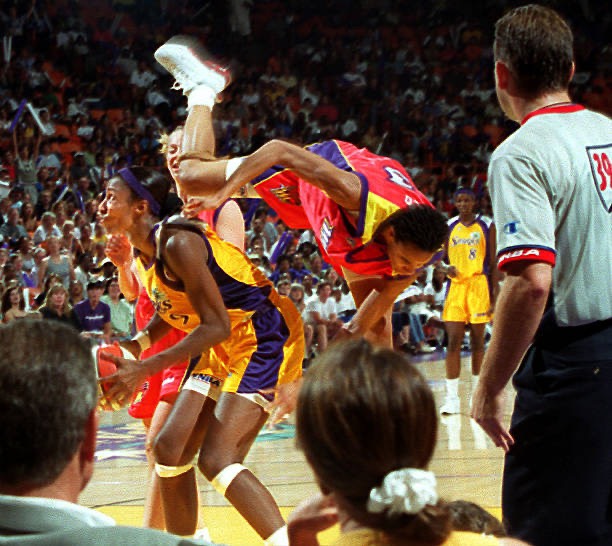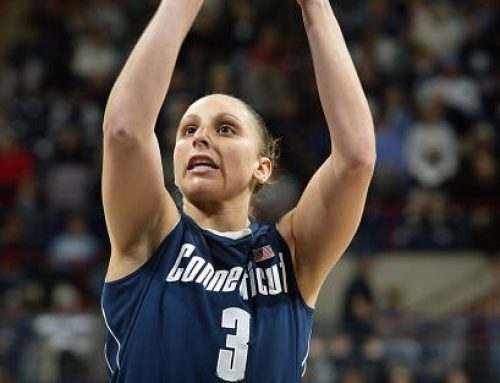
Before the WNBA there was basketball
The history of women in basketball can be traced back to the late 19th century, when women first began playing the game in physical education classes and at colleges and universities. The first women’s intercollegiate game was played in 1895 between Stanford and California. However, it wasn’t until the formation of the Women’s Basketball League in 1898 that the game began to gain popularity among women.
In the 1920s and 1930s, women’s basketball continued to grow in popularity, and the first professional women’s teams were formed. The All-American Red Heads, formed in 1936, were one of the most successful teams of the era and played exhibition games against men’s teams.
In 1972, the passage of Title IX legislation ensured that women’s sports programs would receive equal funding to men’s programs, which led to a significant increase in opportunities for women in basketball. The first NCAA Women’s Basketball Championship was held in 1982, and in 1996, the Women’s National Basketball Association (WNBA) was founded, providing a professional league for women’s basketball players.
Women’s basketball has come a long way over the years, from being a relatively unknown and underfunded sport to becoming a major sport with professional leagues, national teams, and international competitions. Today, women’s basketball is played at all levels, from youth leagues to college and professional leagues, and has a large and dedicated fanbase and we can all thank Senda Berenson Abbot, now the mother of women’s basketball. Born as a weakling, Senda was enrolled into a gymnastic school to improve her strength and by the age of twenty three, she was hired at Smith College, a private arts women’s college in Northampton, Massachusetts, as the director of physical education department. Within a year of her teaching as an instructor, she learned a new game by then “basket ball” and decided to teach it to her students despite the fact that at the time females only played individual sports like tennis, hiking, swimming, archery. Team sports were considered too dangerous for them however it could be that Senda did not share this opinion due to her own upcoming.
Berenson observed the games played at YMCA and attended physical education conferences at Yale University where she met the game inventor James Smith where he apparently encouraged her to adopt the sport for her female students. In the fall of 1892, she started on the training and on March 22, 1893, Senda refereed the first official game of women’s basketball between the Smith sophomores and the freshman, but no male spectators were allowed. The game was still played with soccer balls and peach baskets, but the problem came on the uniforms. Those that were participating in individual games were good to go with long skirts and tops, but not for basketball. Therefore, the first trousers for women were introduced although they were modest. All the rules and the games spread across especially through YMCAs and women’s colleges. Originally exclusively intramural, the first intercollegiate women’s basketball game was played between teams from Stanford University and the University of California Berkeley, on April 4, 1896. Berenson herself opposed intercollegiate play for women and prioritized the health and fitness benefits for a larger goal: she believed that women, newly entering the workforce and seeking paid jobs outside the home, were at a health-related disadvantage to men, which she saw as limiting women’s opportunities and the possibility for equal wages. By 1895, there were hundreds of women’s basketball teams whose success opened doors to other team sports programmes for women. Like all professional sports, women’s basketball went through a series of changes and it was not until the 1916-1917 issue that they were used as the official standard rules for women’s basketball for seventy years.
The women’s branch of the National Amateur Athletic Foundation was founded in the 1920s, and the organization’s goals included keeping women’s sports non-competitive by discouraging travel and awards, discouraging publicity, and keeping women coaches and administrators in charge of women’s sports. By the 1970s, the sport had attracted the notice of the international Olympic committee, which added women’s basketball as an official sport of the Olympic Games in 1976 in Montreal. America’s first professional Women Basketball League (WBL) was founded in 1978 as the women’s basketball league which competed for three seasons and launched eight teams in1979. It expanded to fourteen teams in 1980, but due to financial issues and poor marketing, as well as the cancellation of America’s participation in the 1980 Summer Olympic games, WBL collapsed at the end of its third season in 1981. The women’s national basketball association (WNBA) was then founded in 1996 by the NBA. After this, though it has gone through a series of changes and formations, women are now seen on top of the game. Though not as popular as the men yet, the light is already being seen, for there are several female basketball legends all over the world today.
Today, the rules for playing the game are similar for both genders and the only differences are the ball size, court dimensions, shot clock, game clock, game length and quarters. However, basketball has become much bigger than the game itself. It has become a platform in which all genders are equally encouraged to work hard and fulfil their destiny as elite athletes. The game has gained a lot of popularity over the years as players are also getting better.



